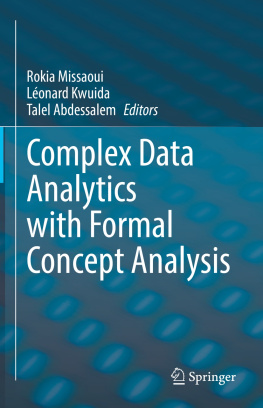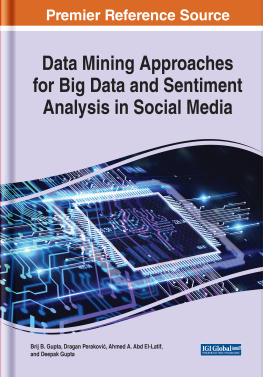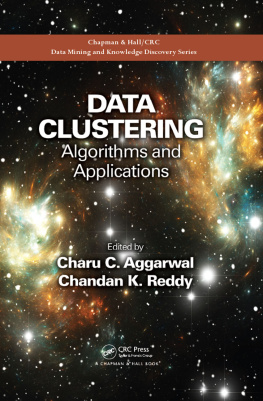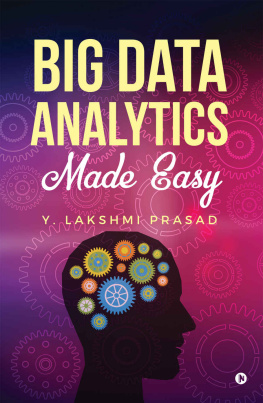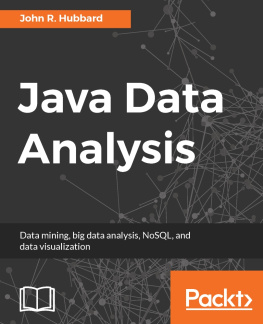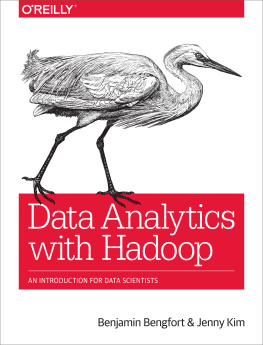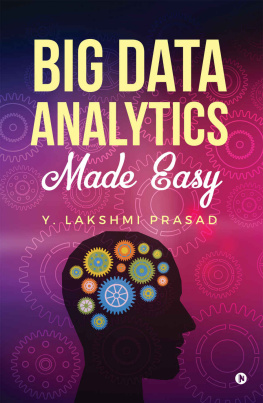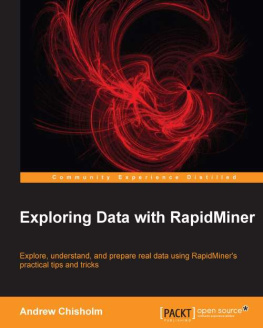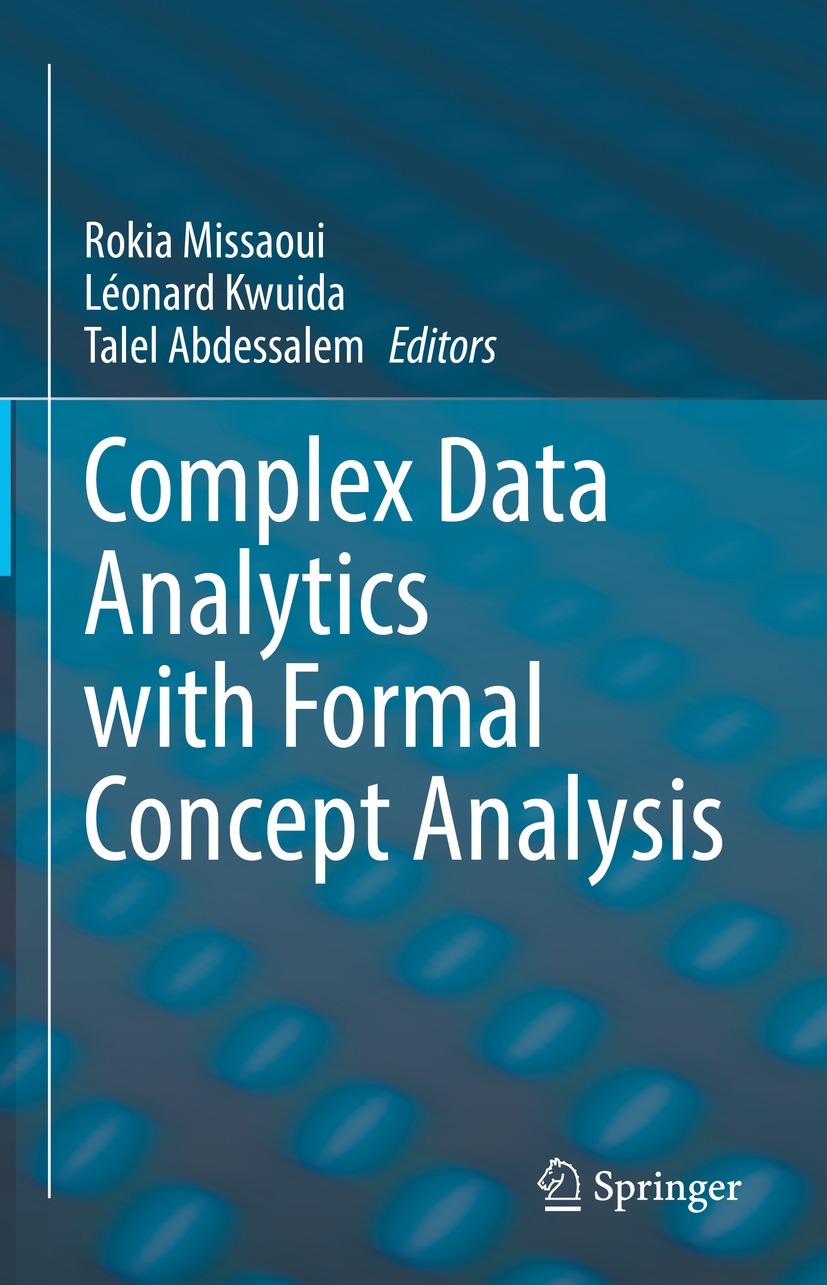Editors
Rokia Missaoui , Lonard Kwuida and Talel Abdessalem
Complex Data Analytics with Formal Concept Analysis

Logo of the publisher
Editors
Rokia Missaoui
University of Quebec in Outaouais, Gatineau, QC, Canada
Lonard Kwuida
Bern University of Applied Sciences, Bern, Switzerland
Talel Abdessalem
Place Marguerite Perey, Tlcom-Paris, Institut Polytechnique, Palaiseau, France
ISBN 978-3-030-93277-0 e-ISBN 978-3-030-93278-7
https://doi.org/10.1007/978-3-030-93278-7
The Editor(s) (if applicable) and The Author(s), under exclusive license to Springer Nature Switzerland AG 2022
This work is subject to copyright. All rights are solely and exclusively licensed by the Publisher, whether the whole or part of the material is concerned, specifically the rights of translation, reprinting, reuse of illustrations, recitation, broadcasting, reproduction on microfilms or in any other physical way, and transmission or information storage and retrieval, electronic adaptation, computer software, or by similar or dissimilar methodology now known or hereafter developed.
The use of general descriptive names, registered names, trademarks, service marks, etc. in this publication does not imply, even in the absence of a specific statement, that such names are exempt from the relevant protective laws and regulations and therefore free for general use.
The publisher, the authors, and the editors are safe to assume that the advice and information in this book are believed to be true and accurate at the date of publication. Neither the publisher nor the authors or the editors give a warranty, expressed or implied, with respect to the material contained herein or for any errors or omissions that may have been made. The publisher remains neutral with regard to jurisdictional claims in published maps and institutional affiliations.
This Springer imprint is published by the registered company Springer Nature Switzerland AG
The registered company address is: Gewerbestrasse 11, 6330 Cham, Switzerland
In memory of Vincent Duquenne
27.06.195026.02.2020.
Foreword
It was in 1970s that Galois connections and respective lattices of closed sets (studied before in Mathematics by Garrett Birkhoff and Oystein Ore) were found useful for modeling information structures and processes [3,26]. After several decades of research in formal concept analysis (FCA) no one can say now that FCA proposes hardly scalable techniques for the analysis of binary data. Highly efficient FCA algorithms with various options for approximation strategies are now widely used for the analysis of complex voluminous heterogeneous data.
In spite of intrinsic complexity of computational problems related to unrestricted generation of both formal concepts and implication bases [15,16], several efficient FCA algorithms were found already around year 2000 [10,19] and new efficient implementations show excellent scalability [1]. Numerous approaches to partial generation of concepts and implications were proposed, based on interestingness constraints [17] and probabilistic considerations [2,5].
Models for treating complex data with FCA-based approaches are manifold. Several approaches were proposed and developed for relational data, first considered through the prism of conceptual scaling, which reduces complex data to binary (or unary, in terms of Rudolf Wille). Most popular approaches to treating complex data in FCA directly, i.e., without binarizing (scaling, in FCA terms) them, are logical concept analysis [7], pattern structures [9], fuzzy concept analysis [4], relational concept analysis [11], triadic concept analysis [13,20,22,23], polyadic CA [25], and probabilistic FCA [14]. Recent interest in natural language processing, knowledge graphs, and social network analysis inspired development of new FCA-based approaches [6,8,12,21].
The recent wave of interest in deep neural networks is tempered by the problems of explainability and robustness of proposed solutions. For some applied domains, like medicine, law, and finance, these issues are crucial: experts would not accept efficient accurate solutions that do not provide acceptable explanations. FCA can propose a broad scope of tools for finding interpretable solutions, since explainability is in the core of FCA. Several attempts were made already to combine neural network efficiency with explainability provided by FCA-based approaches [18,24].
This volume presents an important step in all the above-mentioned directions: meeting the challenge of big and complex data, combining FCA-based approaches with methods based on neural networks to guarantee explainability of results.
References
Simon Andrews. A best-of-breed approach for designing a fast algorithm for computing fixpoints of galois connections. Information Sciences, 295:633649, 2015.
Albert Atserias, Jos L. Balczar, and Marie Ely Piceno. Relative entailment among probabilistic implications. Log. Methods Comput. Sci., 15(1), 2019.
Marc Barbut and Bernard Monjardet. Ordre et classification: algbre et combinatoire. Hachette, Paris, 1970.
Radim Belohlvek. Lattices of fixed points of fuzzy galois connections. Math. Log. Q., 47(1):111116, 2001.
Daniel Borchmann, Tom Hanika, and Sergei Obiedkov. Probably approximately correct learning of horn envelopes from queries. Discrete Applied Mathematics, 273:3042, 2020.
Sbastien Ferr and Peggy Cellier. Graph-fca: An extension of formal concept analysis to knowledge graphs. Discret. Appl. Math., 273:81102, 2020.
Sbastien Ferr and Olivier Ridoux. A logical generalization of formal concept analysis. In Bernhard Ganter and Guy W. Mineau, editors, Conceptual Structures: Logical, Linguistic, and Computational Issues, 8th International Conference on Conceptual Structures, ICCS 2000, Darmstadt, Germany, August 1418, 2000, Proceedings, volume 1867 of Lecture Notes in Computer Science, pages 371384. Springer, 2000.
Boris A. Galitsky, Dmitry I. Ilvovsky, and Sergey O. Kuznetsov. Detecting logical argumentation in text via communicative discourse tree. J. Exp. Theor. Artif. Intell., 30(5):637663, 2018.
Bernhard Ganter and Sergei O. Kuznetsov. Pattern structures and their projections. In Harry S. Delugach and Gerd Stumme, editors, Conceptual Structures: Broadening the Base, 9th International Conference on Conceptual Structures, ICCS 2001, Stanford, CA, USA, July 30-August 3, 2001, Proceedings, volume 2120 of Lecture Notes in Computer Science, pages 129142. Springer, 2001.
Robert Godin, Rokia Missaoui, and Hassan Alaoui. Incremental concept formation algorithms based on galois (concept) lattices. Computational Intelligence, 11:246267, 1995.
Mohamed Rouane Hacene, Marianne Huchard, Amedeo Napoli, and Petko Valtchev. Relational concept analysis: mining concept lattices from multi-relational data. Ann. Math. Artif. Intell., 67(1):81108, 2013.
Mohamed Hamza Ibrahim, Rokia Missaoui, and Abir Messaoudi. Detecting communities in social networks using concept interestingness. In Iosif-Viorel Onut, Andrew Jaramillo, Guy-Vincent Jourdan, Dorina C. Petriu, and Wang Chen, editors,

